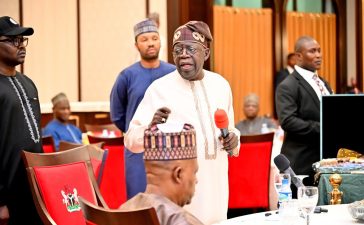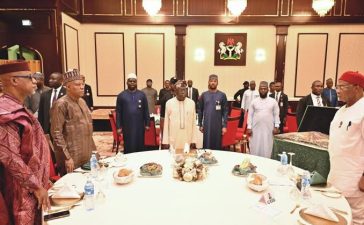The Federal Government of Nigeria has revealed that the country requires an annual investment of $6.25 billion to close its growing housing deficit, which is currently estimated at over 28 million units.
This alarming figure was disclosed by the Minister of Housing and Urban Development, Ahmed Dangiwa, at the Renewed Hope Housing Public-Private Partnership Summit held recently in Abuja.
The summit was a platform for discussing ways to leverage collaboration between the government and private sector to tackle Nigeria’s severe housing challenges.
In his address, Dangiwa acknowledged that Nigeria has faced persistent struggles in overcoming its housing deficit. While various housing policies and strategy papers have been introduced over the years, progress has been slow.
He pointed out that inconsistent policy implementation, lack of political will, and poor coordination have been significant barriers to achieving meaningful results. “We cannot continue to stand by while millions of Nigerians remain homeless or live in substandard housing conditions,” Dangiwa said.
“Under the leadership of President Bola Ahmed Tinubu, we are committed to breaking this cycle of inaction and delivering real, tangible solutions to Nigeria’s housing crisis.”
The minister explained that addressing the housing deficit in Nigeria requires urgent and sustained investment. To meet the growing demand for housing, Nigeria must deliver 500,000 housing units annually over the next decade, he stated.
This ambitious target, however, comes with a substantial financial burden. At an average cost of N10 million per housing unit, the total cost to meet the required annual production of 500,000 units amounts to over N5 trillion (approximately $6.25 billion) each year.
Dangiwa highlighted that this scale of investment cannot be achieved by the government alone. He emphasized that a collaborative approach is essential to meeting the country’s housing needs, and that the private sector must play a crucial role in this process.
Public-private partnerships (PPPs) have been identified as a key strategy for mobilizing the necessary financial resources, leveraging expertise, and streamlining project execution.
The minister also pointed out that while there have been several past efforts to address Nigeria’s housing challenges, the lack of a coherent, long-term strategy and political commitment has undermined these initiatives.
However, with the renewed focus of the Tinubu administration on housing development, Dangiwa expressed confidence that the country could begin to see substantial progress.
The urgency of this issue was underscored by the growing population of urban areas in Nigeria, particularly in cities like Lagos, Abuja, and Port Harcourt.
With a rapidly increasing urban population, the demand for housing is outpacing supply, leading to soaring rental prices and a rise in informal settlements or slums.
Dangiwa’s call to action also included a focus on building affordable housing options that are accessible to lower and middle-income Nigerians. He reiterated that providing affordable and decent housing for all Nigerians is critical to the country’s social and economic development.
The government’s role, he explained, is to provide the enabling environment, including access to land, financing, and policy frameworks that will attract private sector investments.
In addition to investment, the minister emphasized the importance of capacity building, technical innovation, and improving construction standards to ensure that the housing built is not only affordable but also sustainable and of high quality.
The Renewed Hope Housing Public-Private Partnership Summit brought together key stakeholders, including developers, financial institutions, government agencies, and international organizations, to discuss innovative financing models, regulatory reforms, and other strategies to overcome the housing deficit. These discussions are expected to lead to concrete steps towards addressing Nigeria’s housing crisis.
“This is a critical moment for Nigeria,” said Dangiwa. “We have the opportunity to break the cycle of inadequate housing and lay the foundation for a more prosperous and equitable future for all Nigerians. With the right partnerships and a shared commitment, we can overcome this challenge.”
The Federal Government’s call for an annual investment of $6.25 billion marks a pivotal moment in Nigeria’s efforts to solve its housing crisis and improve the living conditions of millions of its citizens.







